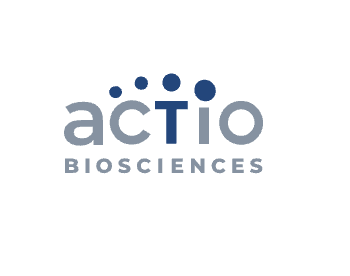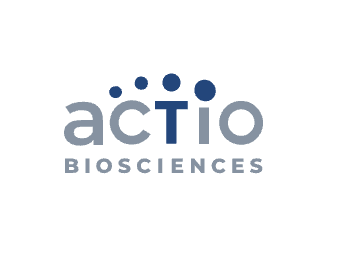
Actio Biosciences Receives FDA IND Clearance and Fast Track Designation for ABS-1230 in KCNT1-Related Epilepsy, Marking Major Advancement in Pediatric Precision Medicine
Actio Biosciences, a clinical-stage biotechnology company pioneering novel therapies through the lens of genetics and precision medicine, has announced a pivotal regulatory milestone in the development of its lead therapeutic candidate, ABS-1230. The U.S. Food and Drug Administration (FDA) has officially cleared the company’s Investigational New Drug (IND) application for ABS-1230, a first-in-class, orally administered small molecule inhibitor targeting the KCNT1 ion channel. Alongside IND clearance, the FDA has also granted Fast Track designation to ABS-1230 for the treatment of KCNT1-related epilepsy, a devastating pediatric condition with limited to no effective treatment options.
The announcement signals a significant step forward in Actio’s mission to develop transformative treatments for genetically defined rare diseases and serves as a beacon of hope for families and patients affected by KCNT1-related epileptic disorders—a rare and frequently lethal developmental epileptic encephalopathy affecting an estimated 2,500 children in the United States. To further accelerate development, ABS-1230 has also received conditional approval from the Human Research Ethics Committee (HREC) in Australia to begin clinical evaluation.
Addressing a Dire Unmet Need in Pediatric Neurology
KCNT1-related epilepsy is among the most severe forms of pediatric epileptic encephalopathy, characterized by early-onset, treatment-resistant seizures—often beginning within the first few weeks of life. Many children diagnosed with this genetic disorder experience up to 20 seizures daily, often accompanied by profound developmental delays, motor dysfunction, and cognitive impairment. With no current FDA-approved, disease-modifying therapies targeting the underlying genetic mutations, treatment has largely been symptomatic and palliative, relying heavily on antiseizure medications that frequently fail to provide sustained control.
Recognizing the need for a fundamentally different therapeutic approach, Actio Biosciences developed ABS-1230 to inhibit the overactive KCNT1 potassium ion channels implicated in the disease. These ion channels are typically mutated in affected children, causing excessive neuronal excitability and epileptic activity. According to the company, ABS-1230 is designed to act directly on the root cause by selectively and potently inhibiting all recurrently observed pathogenic KCNT1 mutations. Preclinical studies have shown promising results, with ABS-1230 demonstrating rapid suppression of seizures and normalization of neuronal activity in multiple disease models.
CEO David Goldstein Highlights the Promise of ABS-1230
Dr. David Goldstein, co-founder and Chief Executive Officer of Actio Biosciences, emphasized the magnitude of this milestone and its implications for families grappling with the daily challenges of KCNT1-related epilepsy.

“Regulatory approval to initiate clinical evaluation of ABS-1230 is a significant moment for Actio and the children who are living with this devastating form of epilepsy that can lead to upwards of 20 seizures a day,” said Dr. Goldstein. “With no disease-modifying therapies available today, we designed ABS-1230 to address the root cause of disease, having demonstrated ABS-1230’s ability to inhibit all recurrently observed pathogenic mutations in the KCNT1 gene and rapidly suppress seizures in preclinical models. We look forward to initiating our Phase 1 trial in healthy volunteers soon and further determining the potential therapeutic potential of ABS-1230 for patients with KCNT1-related epilepsy.”
He further noted that Fast Track designation by the FDA underscores the urgent need for a novel therapeutic approach to treat this rare but severe condition and confirmed Actio Biosciences’s commitment to working closely with regulators to expedite the clinical development process.
A Parent and Advocate’s Perspective: “Today, We Get to Celebrate”
Adding a deeply personal dimension to the announcement, Dr. Justin West, M.D., co-founder of the KCNT1 Epilepsy Foundation and father of an 8-year-old living with the condition, shared his profound gratitude and hope in response to the FDA’s decision.
“As a father to an 8-year-old with KCNT1 epilepsy and president of the KCNT1 Epilepsy Foundation, I know firsthand how devastating this disease is for the children who suffer daily seizures, and for the families who care for them around the clock,” said Dr. West. “Most of our children can’t walk, talk or feed themselves. But today, we get to celebrate. The FDA’s approval of Actio’s Phase 1a trial for ABS-1230 marks a historic milestone—not just for science, but for our entire community.
We’re profoundly grateful to the team at Actio for their tireless work, their compassion and their belief in this fight. This trial represents more than hope. It is the beginning of a future we’ve spent years working toward—one where treatments exist, where lives are changed and where families like mine can finally breathe.”
Dr. West’s powerful words underscore the human impact of this Actio Biosciences regulatory milestone. The ability to potentially modify the course of this fatal condition for even a subset of affected children would mark an unprecedented shift in the treatment paradigm.
Regulatory Momentum and Clinical Path Forward
With both IND clearance and Fast Track designation secured, Actio is preparing to launch the first-in-human Phase 1 clinical trial of ABS-1230. The study will commence in healthy volunteers during the fall of 2025, marking the initial step toward assessing safety, tolerability, and pharmacokinetics of the compound. Pending positive data from the Phase 1a study, Actio plans to transition into a Phase 1b proof-of-concept trial in patients with KCNT1-related epilepsy as early as 2026.
Additionally, the U.S. FDA has granted both rare pediatric disease Actio Biosciences designation and orphan drug designation to ABS-1230—two regulatory incentives designed to encourage the development of therapies for rare diseases. These designations can provide several benefits, including tax credits for clinical testing, exemption from certain user fees, and eligibility for a priority review voucher upon marketing approval.
Fast Track Designation: What It Means for ABS-1230
Fast Track designation is a program initiated by the FDA to accelerate the development and review process for investigational drugs that treat serious or life-threatening conditions and address unmet medical needs. With this designation, Actio Biosciences gains access to more frequent interactions with FDA regulators, which can streamline clinical trial design, data collection, and submission strategies. Moreover, therapies with Fast Track designation may be considered for priority review or accelerated approval pathways if the clinical evidence supports it.
This designation could significantly reduce the time needed to bring ABS-1230 from clinical evaluation to potential approval, an essential advantage in the realm of rare pediatric diseases where every month without treatment can mean irreversible developmental decline or even death for patients.
Precision Medicine Meets Pediatric Neurology
At its core, Actio Biosciences is founded on the principle that shared genetic underpinnings between rare and common diseases can be leveraged to create powerful new therapeutics. ABS-1230 embodies this philosophy—using a genetically validated target, the KCNT1 gene, as a precise anchor point for drug development.
In a broader context, the success of ABS-1230 could validate the utility of precision medicine in pediatric neurology, where many developmental disorders remain poorly understood and under-addressed. If ABS-1230 ultimately proves safe and effective, it could signal a new era in drug development for genetic epilepsies—ushering in treatments tailored to specific mutations rather than broad seizure suppression.
The road ahead is still long, and the transition from preclinical success to clinical efficacy is filled with scientific and regulatory challenges. But for now, Actio’s announcement represents a concrete step forward not just in the development of ABS-1230, but in the movement to fundamentally change how rare pediatric diseases like KCNT1-related epilepsy are treated.
As Actio prepares for first-in-human trials, the biotech industry, regulatory agencies, clinicians, patient advocacy organizations, and most importantly, families, will be watching closely. With FDA Fast Track designation, rare pediatric and orphan drug statuses, and regulatory alignment in Australia through HREC, Actio has established strong momentum and a globally informed strategy.
For the thousands of children suffering from KCNT1 epilepsy—and the caregivers and researchers who refuse to give up on them—this is more than just a biotech milestone. It’s the beginning of a long-awaited shift toward hope, dignity, and possibility.
About Actio Biosciences
Actio Biosciences is a clinical-stage biotechnology company focused on developing precision medicines grounded in human genetics. The company aims to deliver transformative therapies for patients with serious diseases by targeting shared biological mechanisms between rare and common conditions. Actio Biosciences’s pipeline includes ABS-1230 for KCNT1-related epilepsy and several other programs targeting genetically defined disorders.
ABS-1230 is an expected first-in-class orally administered, selective small molecule KCNT1 inhibitor for the treatment of KCNT1-related epilepsy. In preclinical studies, ABS-1230 has been shown to inhibit all tested pathogenic mutations in the KCNT1 gene, indicating suitability to treat all patients with KCNT1-related epilepsy. ABS-1230 has the potential to offer patients the convenience of a once-daily pill or solution, in contrast to therapies that require visits to clinical sites for administration. Actio Biosciences plans to initiate the healthy volunteer portion of a Phase 1 clinical trial of ABS-1230 in fall of 2025 with plans to expand into a proof-of-concept Phase 1b study in KCNT1-related epilepsy patients in early 2026.
KCNT1-related epilepsy is a rare and often fatal pediatric epileptic encephalopathy. Patients with KCNT1-related epilepsy experience frequent treatment-resistant seizures that typically begin in early infancy and are accompanied by profound developmental delays and neurological impairments. General antiepileptic drugs have limited benefit in patients with this genetic epilepsy, with side effects that can be debilitating, and the risk of increasing refractoriness over time. It is estimated that approximately 2,500 individuals in the U.S. have KCNT1-related epilepsy.
About Actio Biosciences
Actio Biosciences is a clinical-stage company leveraging advances in precision medicine to develop new therapeutics that target shared genetics in rare and common diseases—bringing meaningful medicines from one to many. Applying its expertise in genetics, drug discovery and data sciences, Actio Biosciences seeks to identify programs where both biological and technical risk can be minimized to streamline the drug development process and bring forward exceptionally potent and precisely targeted small molecule therapeutics.
Actio Biosciences is advancing two precision medicines – ABS-0871 and ABS-1230 – with first-in-class potential for the treatment of Charcot-Marie-Tooth disease, type 2C (CMT2C) and KCNT1-related epilepsy, respectively. Founded in October 2021, the San Diego-based company is guided by leaders in genetics and drug development and backed by top healthcare investors. For more information, please visit ActioBiosciences.com and follow the company on LinkedIn and X.





